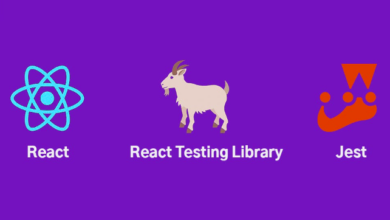Yoda Views: A Philosophical Perspective on Life’s Challenges

Yoda, the iconic character from the Star Wars franchise, has transcended his role as a fictional Jedi Master to become a symbol of wisdom, resilience, and strength. His cryptic speech patterns and profound insights have made him a beloved figure and a source of inspiration for audiences worldwide. This article will explore “Yoda Views,” or the various lessons and philosophies that can be derived from Yoda’s words and actions. We’ll examine his unique approach to handling life’s challenges, personal growth, and spirituality.
The Wisdom of Yoda: An Overview
Yoda’s perspective on life is shaped by his profound understanding of the Force, which in Star Wars represents a metaphysical and binding power that flows through all living things. In many ways, Yoda’s teachings reflect real-world philosophical and spiritual concepts, such as mindfulness, acceptance, and resilience. His words challenge us to look within ourselves, confront our fears, and embrace the world around us.
write 1 para on this keyword ‘Yoda Views
Yoda Views encapsulates the profound wisdom and philosophical insights of Yoda, the iconic Jedi Master from the Star Wars universe. Through his teachings, Yoda emphasizes essential life lessons such as mindfulness, resilience in the face of failure, the power of belief, and the necessity of confronting fear. His memorable phrases, like “Do or do not. There is no try,” inspire individuals to embrace commitment and self-belief while navigating life’s challenges. Yoda’s perspective encourages a deep connection with oneself and the universe, reminding us that every experience, whether triumph or setback, is an opportunity for growth and understanding. Ultimately, “Yoda Views” serve as a timeless guide for anyone seeking to cultivate wisdom and compassion in their daily lives.
At the core of Yoda’s views is the idea that challenges and struggles are not to be avoided but embraced as opportunities for growth. He consistently encourages self-reflection, patience, and an unwavering belief in the potential for positive transformation. These ideals resonate deeply with concepts found in various Eastern philosophies, including Buddhism and Taoism, as well as aspects of Stoicism from Western philosophy.
Key Themes in Yoda’s Views
Before diving deeper into specific lessons, let’s explore some of the primary themes that define Yoda’s perspective on life and its challenges:
- Mindfulness and Presence: Yoda emphasizes living in the moment, being fully present, and paying attention to one’s surroundings. He discourages dwelling on the past or worrying about the future, as these distractions can cloud judgment and weaken one’s connection to the Force.
- Embracing Failure as a Teacher: Yoda views failure as an essential part of growth. Instead of fearing mistakes, he encourages embracing them as learning opportunities. His famous line, “The greatest teacher, failure is,” underscores this philosophy.
- The Power of Belief and Positive Thinking: Yoda often speaks about the importance of belief, particularly in oneself. The well-known phrase, “Do or do not. There is no try,” reflects his conviction that self-belief is essential to success and that doubt can hinder progress.
- Confronting Fear: Fear, according to Yoda, is a path to the dark side. He teaches that fear can consume and lead to anger, hate, and suffering. Confronting fear with courage and composure is essential to overcoming it.
- Unity with the Universe: Yoda views all life as interconnected. He respects all forms of life, recognizing that everything is part of a larger whole. This unity is a cornerstone of his philosophy and a guiding principle for his actions.
Mindfulness and Presence
Yoda is a master of mindfulness, a state of being fully aware and present in the moment. His teachings encourage letting go of distractions and embracing the here and now. In The Empire Strikes Back, when he trains Luke Skywalker on Dagobah, he imparts the lesson, “All his life has he looked away…to the future, to the horizon. Never his mind on where he was…what he was doing.” Here, Yoda emphasizes the importance of grounding oneself in the present to fully experience life.
Mindfulness, as Yoda illustrates, is crucial for making wise decisions. By being fully present, one can respond to situations with clarity and calmness. This principle is not only essential for Jedi but applicable to anyone facing daily challenges. By practicing mindfulness, we can improve our focus, reduce stress, and enhance our overall well-being.
Embracing Failure as a Teacher
Failure is an unavoidable part of life, but Yoda teaches that it should not be feared or avoided. Instead, it should be embraced as a vital teacher. Yoda explains this concept when he tells Luke that “the greatest teacher, failure is.” For Yoda, mistakes are opportunities to learn and grow, not sources of shame or regret.
In the real world, this perspective encourages a healthy attitude towards setbacks. By viewing failure as a stepping stone rather than a dead end, we can build resilience and determination. Rather than letting failure discourage us, Yoda’s view inspires us to persist, learn from our mistakes, and ultimately become stronger and wiser.
The Power of Belief and Positive Thinking
Yoda is a firm believer in the power of positive thinking and self-belief. This is best exemplified in his iconic advice to Luke: “Do or do not. There is no try.” With this statement, Yoda emphasizes the importance of commitment and belief in one’s ability to succeed. Doubt, according to Yoda, only serves to weaken our resolve and limit our potential.
This perspective is closely aligned with psychological principles of self-efficacy and positive thinking. Believing in oneself is essential to achieving goals, and self-doubt can often be the biggest obstacle to success. By cultivating a mindset of confidence and determination, we can unlock our full potential and face challenges head-on.
Confronting Fear
Fear is a recurring theme in Yoda’s teachings, as he views it as a dangerous and potentially destructive emotion. He famously warns that “Fear is the path to the dark side. Fear leads to anger, anger leads to hate, hate leads to suffering.” Yoda recognizes that fear can consume and control individuals, leading them to make choices that are harmful to themselves and others.
In our own lives, fear can prevent us from pursuing our dreams or standing up for what we believe in. Yoda’s advice is to confront and acknowledge fear rather than letting it fester. By facing our fears, we can prevent them from dictating our actions and ultimately find peace and inner strength.
Unity with the Universe
One of the most profound aspects of Yoda’s philosophy is his belief in the interconnectedness of all life. He describes the Force as an energy that binds the galaxy together, and he sees every living being as part of this greater whole. This view aligns closely with ecological and spiritual beliefs that emphasize the interconnectedness of all things.
Yoda’s respect for all life serves as a reminder to value and appreciate the world around us. By recognizing our connection to others and the environment, we can develop a deeper sense of empathy and responsibility. This mindset can inspire us to live harmoniously with others and to work towards a sustainable and compassionate world.
Applying Yoda Views to Everyday Life
Yoda’s views on mindfulness, failure, belief, fear, and unity are not just principles for Jedi knights—they are universal insights that can be applied to anyone’s daily life. Here are some practical ways to incorporate Yoda’s wisdom into your everyday routines:
1. Practicing Mindfulness Meditation
One of the simplest ways to embrace Yoda’s teachings on mindfulness is through meditation. Set aside a few minutes each day to focus on your breath, clear your mind, and be present. This practice can help you develop greater self-awareness and emotional control, allowing you to handle stress and make thoughtful decisions.
2. Learning from Mistakes and Failures
When you encounter setbacks, take a moment to reflect on what went wrong and what you can learn from the experience. By treating each failure as a valuable lesson, you can cultivate resilience and improve your ability to navigate future challenges.
3. Cultivating Self-Belief and a Positive Attitude
Remind yourself that you are capable of achieving your goals, even when obstacles arise. Replace negative thoughts with positive affirmations, and approach challenges with confidence. Remember Yoda’s words: “Do or do not. There is no try.” Approach tasks with a sense of purpose and commitment.
4. Facing Your Fears Head-On
When you feel fear creeping in, take a moment to acknowledge it. Try to identify the source of your fear and challenge it. By confronting your fears directly, you can prevent them from holding you back and gain a greater sense of control over your life.
5. Fostering a Sense of Connection with Others
Spend time appreciating the people and environment around you. Practice empathy by putting yourself in others’ shoes, and remember that we are all connected. By fostering compassion and respect for others, you can create positive relationships and contribute to a more harmonious world.
Yoda Views in the Context of Modern Philosophy and Psychology
Yoda’s perspectives have remarkable parallels with various modern philosophical and psychological concepts. Here are a few examples:
Mindfulness and Buddhist Philosophy
Yoda’s emphasis on mindfulness closely aligns with Buddhist teachings on awareness and presence. In Buddhism, mindfulness is essential for attaining enlightenment and inner peace. Both Yoda’s teachings and Buddhist philosophy stress the importance of letting go of distractions and focusing on the present moment as a path to spiritual growth.
Resilience and Stoic Philosophy
Yoda’s views on failure and resilience echo the principles of Stoicism. Stoics believe that hardships and challenges are opportunities for personal growth. Like Yoda, Stoics advocate for embracing adversity and learning from it, rather than allowing it to define or defeat us.
Positive Psychology and Self-Efficacy
Yoda’s focus on belief and positive thinking aligns with the psychological concept of self-efficacy—the belief in one’s ability to achieve goals. Positive psychology emphasizes the power of a positive mindset in improving well-being and success, much like Yoda’s insistence on the importance of self-belief.
Overcoming Fear and Cognitive Behavioral Therapy (CBT)
Yoda’s views on fear reflect principles found in Cognitive Behavioral Therapy (CBT), which helps individuals confront and manage negative thoughts and emotions. CBT teaches that by facing fears and challenging negative thought patterns, we can reduce their power and cultivate a more balanced, positive outlook on life.
Conclusion: Embracing Yoda Views in a Modern World
The wisdom of Yoda extends beyond the realm of Star Wars and provides valuable insights for navigating the complexities of modern life. By incorporating Yoda’s teachings into our daily routines, we can develop greater resilience, empathy, and mindfulness. Whether we are confronting fear, learning from failure, or fostering a sense of unity with the world around us, Yoda views can guide us toward a more fulfilling and meaningful existence.
In a world where challenges and uncertainties are constant, Yoda’s perspective offers a beacon of hope and a reminder that within each of us lies the potential for growth, strength, and wisdom. As we continue to face life’s trials, may we remember his words and find inspiration in the Jedi way. “Pass on what you have learned,” Yoda advises. By embodying his teachings, we too can contribute to a world that is a little more compassionate, courageous, and connected






